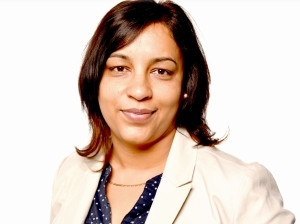* First localised healthcare solution in SA to achieve certification.
* Supports SAP's journey of migrating solutions on the HANA platform.
* Enables a future-proof solution to help healthcare organisations begin the journey towards digital transformation.

T-Systems South Africa has announced that its SAP-based healthcare template solution has now officially been certified on HANA. This achievement is a major milestone for both the organisation and for the South African healthcare sector, certifying that T-Systems has the capability to deploy its solution on HANA, which is set to become the platform for all future SAP solutions.
In addition, it represents the very first localised healthcare solution to be certified on HANA, enabling both public and private healthcare organisations in South Africa to embrace future-proof technology offerings.
"Our healthcare template is a repeatable template solution that localises and enhances the SAP healthcare offering built on their traditional ERP stack. It is fully customised for the South African market in terms of billing rules, taxation, compliance, medical aids and more, and thus requires no configuration. This enabled us to rapidly deploy the full SAP suite at a local hospital and have them fully up and running within three months," says Shubna Harilal, Head of Horizontal & Future Solutions at T-Systems in South Africa.
"Since SAP's roadmap is to move all traditional ERP stack solutions onto the powerful HANA platform, all organisations will need to migrate to HANA by 2025. We have pre-empted this move by re-templating our solution on HANA, enabling us to deploy new customers straight to this platform and create a migration path for existing customers for their future journey," she explains.
While HANA was originally an in-memory relational database engine, it has been optimised for both analytical and transactional processing too, and is the core platform for future ERP deployments. The future roadmap of SAP is to migrate all solutions to HANA by 2025, and general licences are set to expire. T-Systems has begun this journey in order to assist hospitals to move towards future-proof technology and real-time data analytics. In addition, the HANA migration will enable the creation of multi-channel solutions, including on-premises, cloud-based, Web and mobile.
In order to obtain certification, T-Systems had to meet rigorous qualification criteria and ensure sufficient numbers of certified consultants are available who can deploy the solution. The solution must also be deployed in accordance with SAP's stringent development standards, as SAP must be in a position to offer third-level support to any end-customer of the product. All required documentation must be in place before certification is granted.
"This certification is in line with our new innovation programme that is focused on re-templating all of our SAP offerings on the HANA platform. By achieving this certification, T-Systems can now deliver a reliable SAP certified partner solution to both public and private healthcare clients, which is aligned with SAP's new technology direction. This in turn enables SAP to entrench themselves in the South African healthcare vertical," says Harilal.
T-Systems' HANA-based healthcare template allows customers to move towards a real-time environment in all areas, including patient admission information, financials, inventory, human capital and more. This improves turnaround time for data processing, speeding up decision-making ability and enabling hospitals to become more agile when reacting to changes in their environment. Real-time data analytics also provides the ability for more effective patient management, and opens up new avenues such as patient self-admission portals. It also offers a more in-depth view of all assets and where efficiencies can be improved, driving increased competitiveness in the market and enhanced profitability. In addition, accuracy of medical aid submissions can be assured to minimise rejected invoices, and revenue assurance can be achieved by ensuring all billable elements are accurately charged for, minimising lost income.
"Since our healthcare offering is template-based, it is entirely predictable in terms of roll-out, duration and budget, making it a cost-effective solution that helps hospitals improve internal processes as well as external customer services. This provides the ideal first step for hospitals embarking on the journey towards digital transformation," Harilal concludes.
Share
Deutsche Telekom
Deutsche Telekom is one of the world's leading integrated telecommunications companies with around 151 million mobile customers, 30 million fixed-network lines and more than 17 million broadband lines (as of 31 December 2014). The group provides fixed network, mobile communications, Internet and IPTV products and services for consumers and ICT solutions for business customers and corporate customers. Deutsche Telekom is present in more than 50 countries and has approximately 228 000 employees worldwide. The group generated revenues of EUR 62.7 billion in the 2014 financial year - more than 60% of it outside Germany.
T-Systems
Deutsche Telekom considers the European business customer segment a strategic growth area. Deutsche Telekom offers small, medium-sized and multinational companies ICT solutions for an increasingly complex digital world. In addition to services from the cloud, the range of services is centred on M2M and security solutions, complementary mobile communications and fixed network products and solutions for virtual collaboration and IT platforms, all of which forms the basis for its customers' digital business models.
With approximately 47 800 employees worldwide, T-Systems generated revenue of around EUR 8.6 billion in the 2014 financial year.
Since the inception of T-Systems in South Africa in 1997, the company has cemented its position as one of the most successful T-Systems companies outside of Europe. A leading ICT outsourcing service provider locally, T-Systems offers end-to-end ICT solutions in both the ICT operations and systems integration markets. Its extensive portfolio of services covers the vertical, horizontal, IT and TC space. T-Systems South Africa's head office is located in Midrand, with another major office in Cape Town, and 20 further representative offices in locations throughout southern Africa.
Editorial contacts